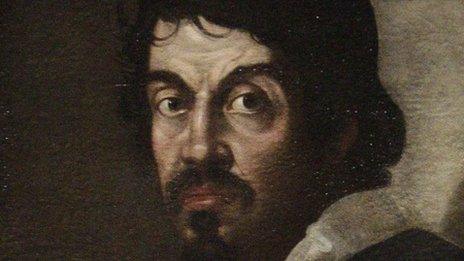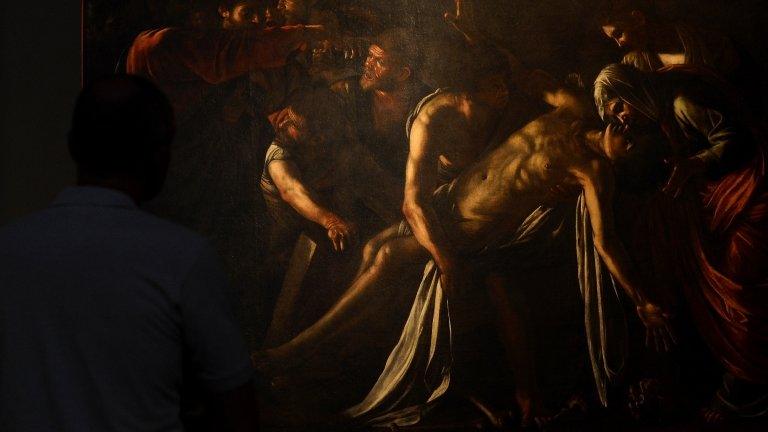Sotheby's sued over 'misattributed' Caravaggio claim
- Published
The Cardsharps is at the centre of a legal battle between Sotheby's and its former owner
A painting sold by Sotheby's in London for £42,000 is at the centre of a legal battle amid claims that it could actually be the work of Italian baroque master Caravaggio and worth up to £11m.
Former owner Bill Thwaytes, of Penrith in Cumbria, has accused the auction house of "professional negligence".
When it was sold in 2006, it was attributed to a follower of the artist.
Mr Thwaytes said more should have been done to determine whether it was by Caravaggio, who died in 1610.
The oil painting The Cardsharps depicts a wealthy man falling victim to two cheats at a card table.
It was bought by the Thwaytes family in 1962 for £140.
In 2006, Mr Thwaytes asked Sotheby's to value the work and the auction house concluded that the painting was one of several copies made of the original, which is on display at the Kimbell Art Museum in Fort Worth, Texas.
In the 1950s, the Thwaytes family sold a genuine Caravaggio, The Musicians, to the Metropolitan Museum of Art in New York. Mr Thwaytes suspected his version of The Cardsharps was also likely to be authentic.
But Sotheby's decided the copy was not created by the Italian master himself and attributed it to a 17th Century follower.
The painting was sold for £42,000. But its new owner - a British collector - has declared it to be by Caravaggio and worth millions.
'Preposterous' valuation
Speaking at the High Court in London on Monday, Henry Legge QC, for Mr Thwaytes, said the issue was not whether it could be proved on the balance of probabilities that the painting was by Caravaggio.
The core of the case, he said, was a claim of negligence. He said Sotheby's had failed to thoroughly research the painting, consult outside experts or properly advise Mr Thwaytes.
Sotheby's is defending the claim and has described suggestions the painting is worth £11m as "preposterous".
In papers submitted to the court, the auction house said its experts were competent to assess the artwork and none of the leading scholars who have examined it since it was sold think it is by Caravaggio.
Mr Thwaytes and some of the world's leading Caravaggio experts will give evidence at the trial, which is due to last for four weeks.
- Published6 July 2012

- Published15 June 2012
